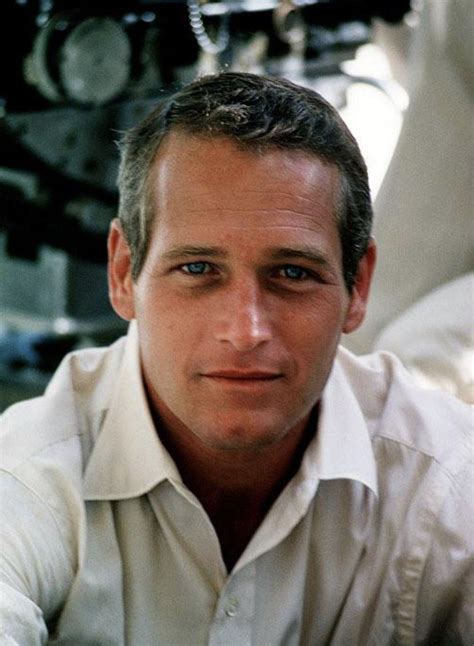The early life of Paul Newman is a fascinating tale of how a young man from a humble background in Ohio would go on to become one of the most iconic actors of Hollywood’s golden age. Born on January 26, 1925, in Shaker Heights, Ohio, Paul Leonard Newman was the second of two children to Theresa and Arthur Samuel Newman. His father, a Jewish immigrant from Poland, owned a successful sporting goods store, providing a comfortable middle-class life for the family.
Growing up, Paul was a restless and adventurous child, often finding himself at odds with his parents’ desires for him to follow in his father’s footsteps in the family business. Instead, he developed a passion for acting, encouraged by his mother and his uncle, Joseph Newman, who would take him to see plays and films. This early exposure to the performing arts sparked a fire within Paul, and he began to pursue acting with fervor, attending the prestigious Shaker Heights High School, where he was an active member of the school’s drama club.
After graduating from high school in 1943, Paul enrolled at Ohio University, but his academic pursuits were soon interrupted by World War II. He joined the United States Navy, hoping to become a pilot, but was rejected due to his colorblindness. Instead, he served as a radioman on a torpedo bomber, witnessing the harsh realities of war firsthand. This experience would later influence his acting career, as he drew upon the emotions and lessons learned during his time in the military to bring depth and authenticity to his performances.
Following the war, Paul returned to Ohio University, where he studied drama and graduated in 1949. He then moved to New Haven, Connecticut, to attend the Yale School of Drama, where he honed his craft and began to make a name for himself in the theater community. It was during this period that Paul met his first wife, Jacqueline “Jackie” Witte, with whom he had two children, Scott and Susan.
The early 1950s saw Paul’s career begin to take off, with appearances on stage and screen in productions such as “Picnic” and “The Silver Chalice.” His breakthrough role came in 1958 with the film “Somebody Up There Likes Me,” directed by Robert Wise, which earned him critical acclaim and recognition within the industry. This was soon followed by his iconic portrayal of Brick Pollitt in the 1958 film adaptation of Tennessee Williams’ “Cat on a Hot Tin Roof,” cementing his status as a leading man in Hollywood.
Paul Newman's early life and experiences played a significant role in shaping his acting career. His time in the military, for instance, influenced his ability to convey a sense of authenticity and emotional depth on screen, while his theater background provided him with the technical skills and discipline necessary to excel in the highly competitive world of Hollywood.
As the 1960s progressed, Paul continued to push the boundaries of his craft, taking on a wide range of roles in films such as “The Hustler,” “Hud,” and “Harper.” His performances were consistently marked by a unique blend of charisma, vulnerability, and intensity, earning him numerous award nominations and wins, including multiple Academy Awards.
Throughout his life, Paul Newman remained committed to his craft, always seeking to challenge himself and grow as an artist. His legacy extends far beyond his impressive body of work, however, as he was also a dedicated philanthropist and entrepreneur. The establishment of the Newman’s Own food company in 1982, which donates all profits to charity, is a testament to his generosity and commitment to giving back to the community.
What were some of Paul Newman's most notable early roles?
+Some of Paul Newman's most notable early roles include his appearances in "Picnic," "The Silver Chalice," "Somebody Up There Likes Me," and "Cat on a Hot Tin Roof." These roles helped establish him as a rising star in Hollywood and showcased his versatility as an actor.
How did Paul Newman's experiences in World War II influence his acting career?
+Paul Newman's experiences in World War II had a profound impact on his acting career, as they provided him with a deeper understanding of human emotion and the complexities of the human experience. This is reflected in many of his performances, which are characterized by their emotional depth and authenticity.
In conclusion, the story of Paul Newman’s early life is one of talent, perseverance, and dedication to his craft. From his humble beginnings in Ohio to his rise as a Hollywood icon, Paul’s journey is an inspiration to aspiring actors and a testament to the power of hard work and determination. As we reflect on his legacy, we are reminded of the enduring impact of his performances and the lasting influence he has had on the world of film and theater.
Paul Newman's legacy extends far beyond his impressive body of work, as he was also a dedicated philanthropist and entrepreneur. His commitment to giving back to the community and his passion for his craft continue to inspire new generations of actors and filmmakers.
The life and career of Paul Newman serve as a powerful reminder of the importance of staying true to one’s passion and pursuing one’s dreams with unwavering dedication. As we look to the future, we can draw inspiration from his story, embracing the challenges and opportunities that lie ahead with courage, creativity, and a commitment to excellence.



